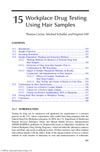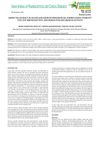 12 citations,
January 2007 in “Acta dermato-venereologica”
12 citations,
January 2007 in “Acta dermato-venereologica” Europe needs a clear system to watch over cosmetics for safety and to make sure product claims are true.
[object Object]  17 citations,
October 2003 in “Contact dermatitis”
17 citations,
October 2003 in “Contact dermatitis” Glycerin in hand cream can cause allergic skin reactions.
 9 citations,
June 2000 in “Journal of The American Academy of Dermatology”
9 citations,
June 2000 in “Journal of The American Academy of Dermatology” Mutation in hairless gene may increase hair loss risk.
 2 citations,
June 2000 in “Journal of The American Academy of Dermatology”
2 citations,
June 2000 in “Journal of The American Academy of Dermatology” Mutation in hairless gene may increase hair loss risk.
 244 citations,
September 2008 in “Annual Review of Genomics and Human Genetics”
244 citations,
September 2008 in “Annual Review of Genomics and Human Genetics” The document concludes that the fast-growing direct-to-consumer genetic testing market lacks sufficient regulation, posing risks to consumers due to questionable test quality and accuracy.
 38 citations,
July 1989 in “Archives of dermatological research”
38 citations,
July 1989 in “Archives of dermatological research” Testosterone causes hair loss in AGA mice, which are good for testing baldness treatments, and both minoxidil and cyproterone acetate can prevent this hair loss.
 53 citations,
February 2022 in “The Journal of clinical endocrinology and metabolism/Journal of clinical endocrinology & metabolism”
53 citations,
February 2022 in “The Journal of clinical endocrinology and metabolism/Journal of clinical endocrinology & metabolism” AMH helps estimate ovarian reserve but doesn't predict pregnancy chances; age is more important.
 13 citations,
January 2022 in “Stem cell reviews and reports”
13 citations,
January 2022 in “Stem cell reviews and reports” Mouse stem cells from hair follicles can improve wound healing and reduce scarring.
 1 citations,
November 2022 in “Pharmaceutical research”
1 citations,
November 2022 in “Pharmaceutical research” The simulation showed that hypobaric pressure improves drug delivery through the skin, but stretching alone doesn't fully explain the increase.
 1 citations,
August 2006 in “International forensic science and investigation series”
1 citations,
August 2006 in “International forensic science and investigation series” Hair testing is a reliable method for detecting workplace drug use when done with proper sample preparation and confirmation.
 May 2023 in “Current Applied Science and Technology”
May 2023 in “Current Applied Science and Technology” Higher power CO2 laser causes more severe skin burns and damage.
 92 citations,
August 2017 in “Proceedings of the National Academy of Sciences of the United States of America”
92 citations,
August 2017 in “Proceedings of the National Academy of Sciences of the United States of America” Newborn mouse skin cells can grow hair and this process can be recreated in adult cells to potentially help with hair loss.
 48 citations,
February 2016 in “Scientific Reports”
48 citations,
February 2016 in “Scientific Reports” Researchers created rat liver stem cells that could help repair liver failure in rats and may be useful for studying human liver diseases.
 27 citations,
September 1999 in “Journal of Investigative Dermatology”
27 citations,
September 1999 in “Journal of Investigative Dermatology” Human skin cells contain Protease Nexin-1, and male hormones can decrease its levels, potentially affecting hair growth.
 12 citations,
January 1991 in “Archives of dermatological research”
12 citations,
January 1991 in “Archives of dermatological research” Male hormones control a specific gene in hamster skin, with different hormones having varying effects.
 December 2024 in “Medical Review”
December 2024 in “Medical Review” Organoids help study and treat genetic diseases, offering personalized medicine and therapy testing.
 June 2017 in “Asian journal of pharmaceutical and clinical research”
June 2017 in “Asian journal of pharmaceutical and clinical research” Green tea extract gel safely increases eyelash length.
 276 citations,
December 2017 in “Journal of Dermatological Science”
276 citations,
December 2017 in “Journal of Dermatological Science” The document concludes that mouse models are helpful but have limitations for skin wound healing research, and suggests using larger animals and genetically modified mice for better human application.
 52 citations,
October 2010 in “Antiviral Therapy”
52 citations,
October 2010 in “Antiviral Therapy” New treatments for Hepatitis C show promise but need more research to confirm their safety and effectiveness for clinical use.
 50 citations,
January 2016 in “The Journal of Clinical Endocrinology and Metabolism”
50 citations,
January 2016 in “The Journal of Clinical Endocrinology and Metabolism” Certain microRNAs in the fluid around eggs are linked to Polycystic Ovary Syndrome and may help diagnose it.
 42 citations,
June 2020 in “Seminars in Oncology”
42 citations,
June 2020 in “Seminars in Oncology” Sex hormones may affect COVID-19 severity, with men often faring worse, and targeting related pathways could offer treatment options.
 27 citations,
September 2017 in “Journal of Medicinal Food”
27 citations,
September 2017 in “Journal of Medicinal Food” Annurca apple supplement safely increases hair growth and keratin in humans.
 3 citations,
July 2020 in “Frontiers in Cell and Developmental Biology”
3 citations,
July 2020 in “Frontiers in Cell and Developmental Biology” Vitexin Compound 1 may help reduce skin aging caused by UVA light.
 2 citations,
September 2023 in “Curēus”
2 citations,
September 2023 in “Curēus” Topical spironolactone may help treat ocular graft-versus-host disease with minimal side effects.
 2 citations,
August 2020 in “Cosmetics”
2 citations,
August 2020 in “Cosmetics” Herbal formula shows promise for hair loss treatment.
 2 citations,
March 2015 in “Toxicology and Environmental Health Sciences”
2 citations,
March 2015 in “Toxicology and Environmental Health Sciences” Rice bran extract caused moderate skin irritation but no eye irritation, while a diluted essence was not irritating to skin and only slightly to guinea pigs.
 1 citations,
November 2017 in “Expert opinion on orphan drugs”
1 citations,
November 2017 in “Expert opinion on orphan drugs” Scientists now better understand the genetics of hypohidrotic ectodermal dysplasia, leading to more accurate diagnoses and potential new treatments.
January 2019 in “The Pharma Innovation Journal” The best mix for a hair loss treatment cream is 10% Sophora japonica tincture and 5% Serenoa repens extract.
[object Object]  262 citations,
May 2017 in “Nanomedicine”
262 citations,
May 2017 in “Nanomedicine” New nanofiber technology improves wound healing by supporting cell growth and delivering treatments directly to the wound.
 149 citations,
September 2017 in “Pharmaceutics”
149 citations,
September 2017 in “Pharmaceutics” Pig skin is a good substitute for human skin to measure drug absorption, but differences in skin structure and enzymes across species must be considered.





























